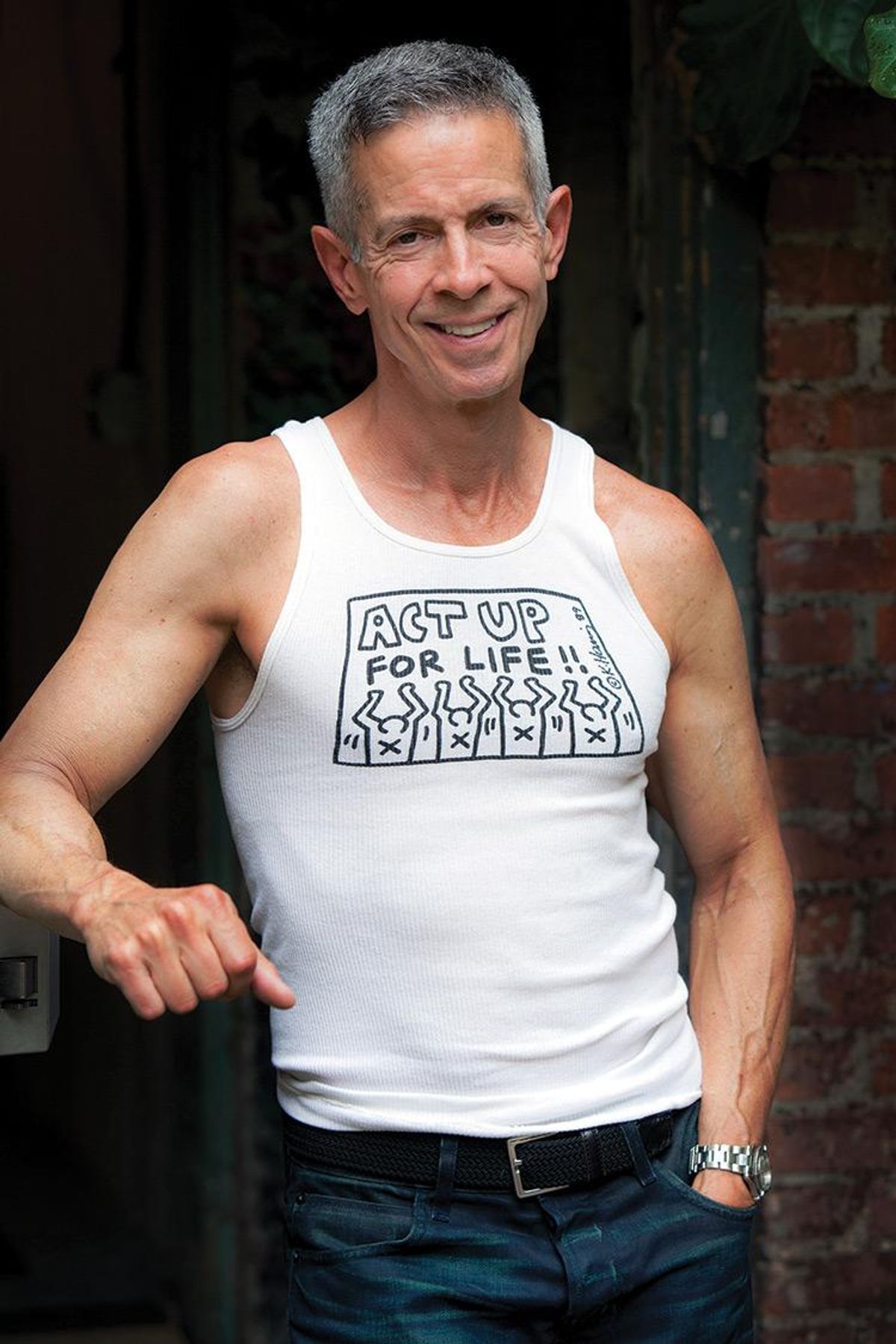
The longtime activist offers up unvarnished views and knocks down anti-PrEP fear-peddlers.
September 12 2016 5:30 AM EST
May 26 2023 2:40 PM EST
By continuing to use our site, you agree to our Private Policy and Terms of Use.

The longtime activist offers up unvarnished views and knocks down anti-PrEP fear-peddlers.
Courtesy of Sean Black.
What if PrEP has long-term health effects that we’ve yet to discover? Or if it leads to a significant decrease in condom use and an increase in STI transmissions? If we let our guards down, couldn’t another virus come along that’s just as devastating as HIV? Is PrEP just setting us up for history to repeat itself?
“If you have those kinds of fears, you shouldn’t be riding in cars,” says veteran HIV and gay rights activist Peter Staley, from his home in New York. “You should be very scared about the next swine flu virus and be taking precautions right now. It doesn’t make a whole lot of sense to live a life of fear based on a future unknown.”
Then why are there people doing just that? In the United States an estimated 44,073 people were diagnosed with HIV in 2014. At-risk populations show a moderate level of adherence to PrEP, according to one study, but we nevertheless had a tool that could have protected most of these people with 99 percent effectiveness. Yet we saw some of the leading voices in HIV and AIDS advocacy peddling such fears rather trying to reduce the diagnosis numbers.
“It’s a drug you have to take every day when you’re feeling well. So if you’re anti-pharma and you think drugs are toxic, you think they’re bad for your body, then PrEP isn’t for you,” Staley explains. “And good luck with your life.” Staley has been actively fighting to get word out about the benefits of PrEP and increase its accessibility. He cofounded the Ad Hoc National Coalition to End the AIDS Epidemic, which recently met with Hillary Clinton, who agreed, as the next president, to launch an “End the Epidemic” working group. This group would engage advocates, experts, and stakeholders to adopt attainable timelines for ending the AIDS epidemic, with a large focus on PrEP.
To be clear, PrEP isn’t toxic, according to the Centers for Disease Control and Prevention. For most people who take it, there are no serious, life-threatening side effects, and people who have taken PrEP for up to five years experienced no significant long-term health effects.
There is the worry that gay men will abandon condom use altogether. According to a study led by Dawn Smith of the CDC, though, 84 percent of men who have sex with men use condoms inconsistently regardless and, as a result, are only 4.4 percent less likely to contract HIV than men who don’t use them at all. So if anything, PrEP is responsible for protecting some of these people.
Then there’s the concern of rising STI transmissions, but those rates were increasing well before PrEP was approved, as is the case with syphilis infection rates, which more than doubled between 2000 and 2010. “[The rise of STIs] has little to do with PrEP at this point,” Staley confirms. “It has a lot to do with health care systems just slashing their budgets for STI testing and STI programs.”
So we see that these fears over changing statistics are about correlation, not causation, and yet they still come up in conversations at dinner parties and barbecues. Could there be an inherent fear within our community, rooted in some strange morality, of history repeating? We already saw a PrEP-resistant strain of HIV in Toronto that proved to be rare, so are some afraid of another deadly virus just as devastating as HIV coming along?
“The science is that we’ve had two pathogens in all of human history, just two, that have killed millions of people through sexual transmission, and they were 500 years apart: syphilis and HIV,” notes Staley. “The next HIV is not something that seems to be percolating up through the animal food chain on a 10-year cycle or even a 100-year cycle.”
“As a society, we are trying to quickly identify new threats when they occur and adapt quickly. We’re not shaming ourselves into a posture of fear based on that future possibility. Only gay men seem to be telling themselves that we need to do that, and I think there’s some self-loathing in that,” Staley says.
Our options seem simple: We can continue to perpetuate the fear of the unknown or defend the powerful thing that we do know — PrEP prevents HIV.